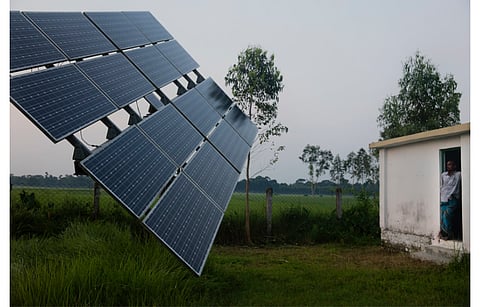

The World Bank has approved $515 million in financing to support 150 MW new rooftop solar capacity come onto the grid in Bangladesh through solar metering connections for over 100 customers. This is aimed at enabling Bangladesh Rural Electrification Board's (BREB) efforts to increase electricity supply.
Under the country's Electricity Distribution Modernization Program, BREB will also be able to strengthen battery energy storage system (BESS) and distributed renewable energy 'through preparation of roadmaps for deployment' through the financing.
BREB expects to supply 6,790 GWh more electricity under the program that's designed to digitize and modernize 25 rural electric cooperatives or Palli Bidyut Samit in Dhaka and Mymensingh divisions.
Proceeds will also be deployed to improve and construct 31,000 km of distribution lines and install 200,000 advanced meters. Overall, the bank's financing will help 9 million Bangladeshis to get access to reliable and clean electricity supply.
"The government of Bangladesh has prioritized access to electricity in the last decade and now the entire population has access to electricity. The installed generation capacity increased five-fold to 25 GW in the same period," said Acting World Bank Country Director for Bangladesh and Bhutan, Dandan Chen. "Through this program, new and emerging technologies will further strengthen the efficiency and reliability of electric supply in the country to meet the need for faster economic growth."
In a related news from another part of the globe, the World Bank has also approved an additional $100 million to support phase II of the Yemen Emergency Electricity Access Project that's designed to improve electricity access in rural and peri-urban areas.
It is aimed at providing solar electricity access for public health centers, schools along with small and innovative businesses, enabling them to function normally as the conflict prone region's ill-equipped electricity infrastructure struggles with fuel shortages.
Of the 3.5 million people to benefit from this arrangement, at least 48% are women and girls. In all, it will provide around 700 public service facilities and 100 schools with new or improved electricity services.
"Through the project, small and innovative businesses will be able to gain access to solar systems, encouraging job creation, and economic recovery," explained World Bank Country Manager for Yemen Tania Meyer.
